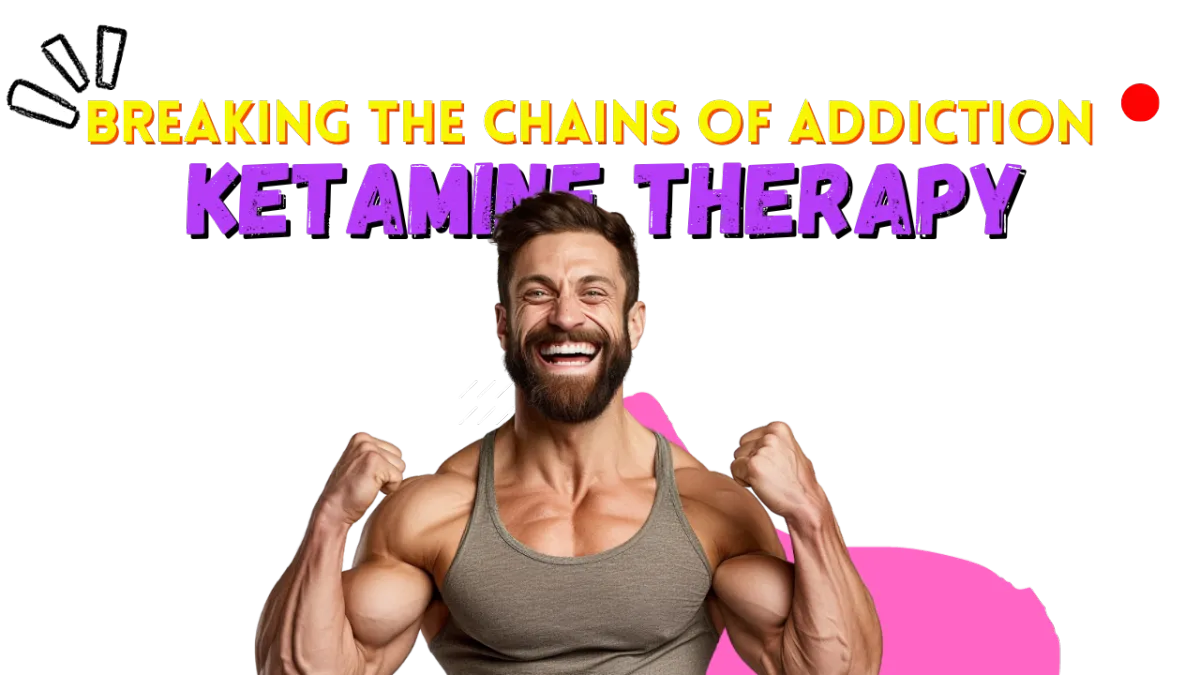

Breaking the Chains of Addiction: How Ketamine Therapy Offers New Hope
“In the darkest depth of addiction, Ketamine therapy can be the spark of transformation, ingniting a journey toward recovery and rediscovery." - Seth Godin
Introduction:
The scourge of drug addiction has plagued individuals and communities for decades, tearing lives apart and leaving a trail of devastation in its wake. While traditional approaches to addiction treatment have been beneficial for many, the ever-evolving landscape of medicine and therapy has introduced a potential game-changer in the form of Ketamine therapy.

The Challenge of Drug Addiction
Drug addiction is a complex, multifaceted issue that affects millions of people worldwide. It's a disease that doesn't discriminate based on age, gender, or social status. Those caught in its grip often find themselves in a relentless cycle of cravings, withdrawal, and despair.
The Role of Ketamine Therapy
Ketamine, originally developed as an anesthetic, has garnered attention for its potential in treating various mental health conditions, including addiction. Its unique mechanism of action, which involves targeting the brain's N-methyl-D-aspartate (NMDA) receptors, has prompted researchers to explore its effectiveness in breaking the chains of addiction.
Ketamine and Cravings
One of the primary challenges in addiction recovery is managing cravings. The intense desire to use drugs can be overwhelming, often leading to relapse. Ketamine therapy may help by disrupting these cravings, offering individuals a better chance at resisting the urge to use.
Addressing Underlying Trauma
Many individuals struggling with addiction have underlying trauma or unresolved emotional issues. Ketamine therapy's dissociative effects can assist in bringing these buried emotions to the surface, allowing for therapeutic processing with the guidance of a trained professional.
A Promising Path to Recovery
While it's essential to approach Ketamine therapy for addiction with caution and under professional supervision, the early results are promising. It has the potential to be a valuable tool in the toolkit of addiction treatment, offering renewed hope to those who have battled addiction for years.
The Importance of Comprehensive Care
It's important to note that Ketamine therapy is not a standalone solution for addiction. It should be integrated into a comprehensive addiction treatment plan that includes counseling, support groups, and other evidence-based therapies.
Conclusion
Drug addiction is a formidable adversary, but with innovative approaches like Ketamine therapy, there is hope on the horizon. While more research is needed to fully understand its potential and limitations, Ketamine has already demonstrated its ability to shine a light on the path to recovery for many individuals. As we continue to explore its role in addiction treatment, we may find that it becomes a beacon of hope in the battle against drug addiction.
Featured in

CURRENT AND PRIOR AFFILIATIONS













